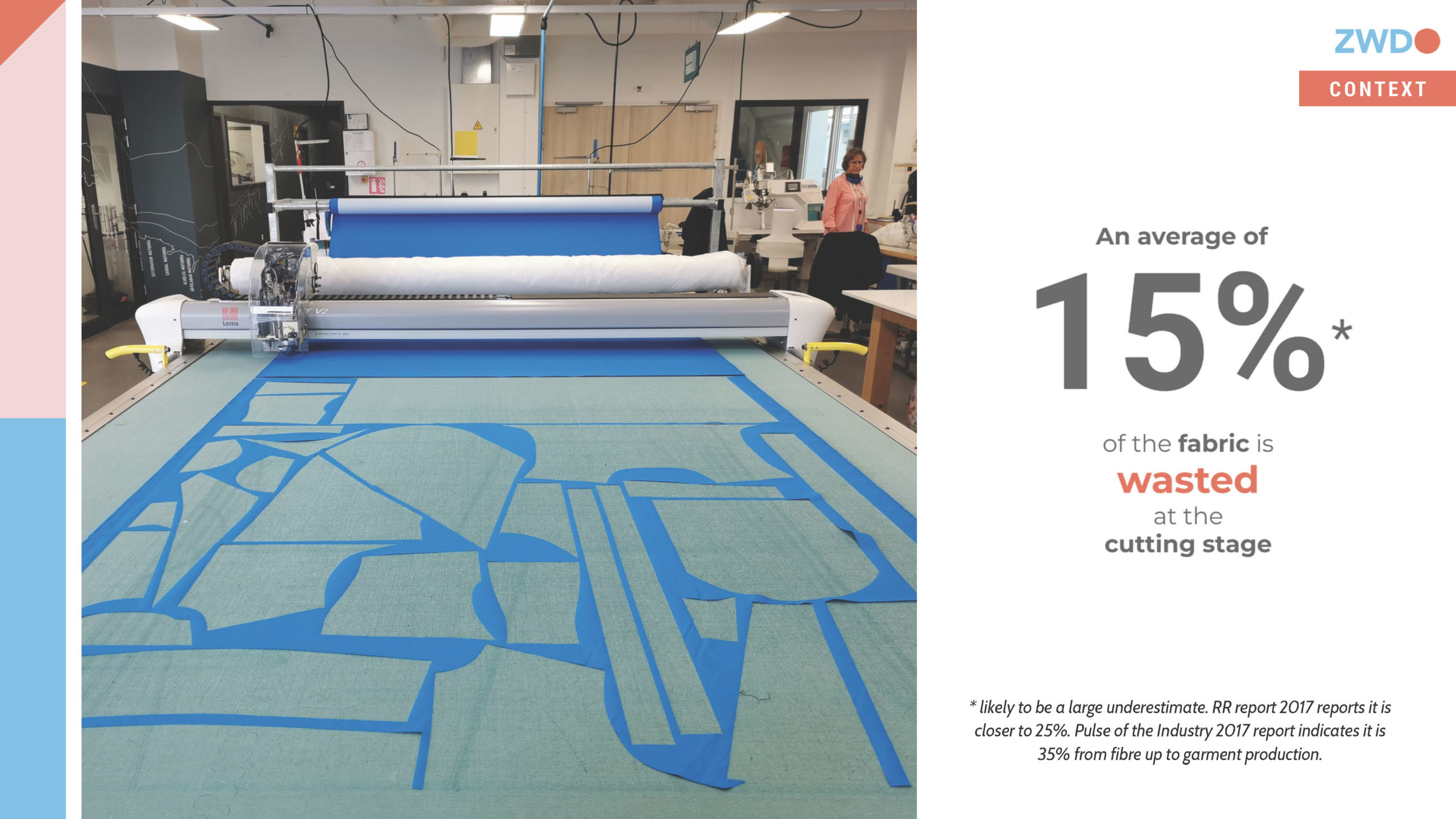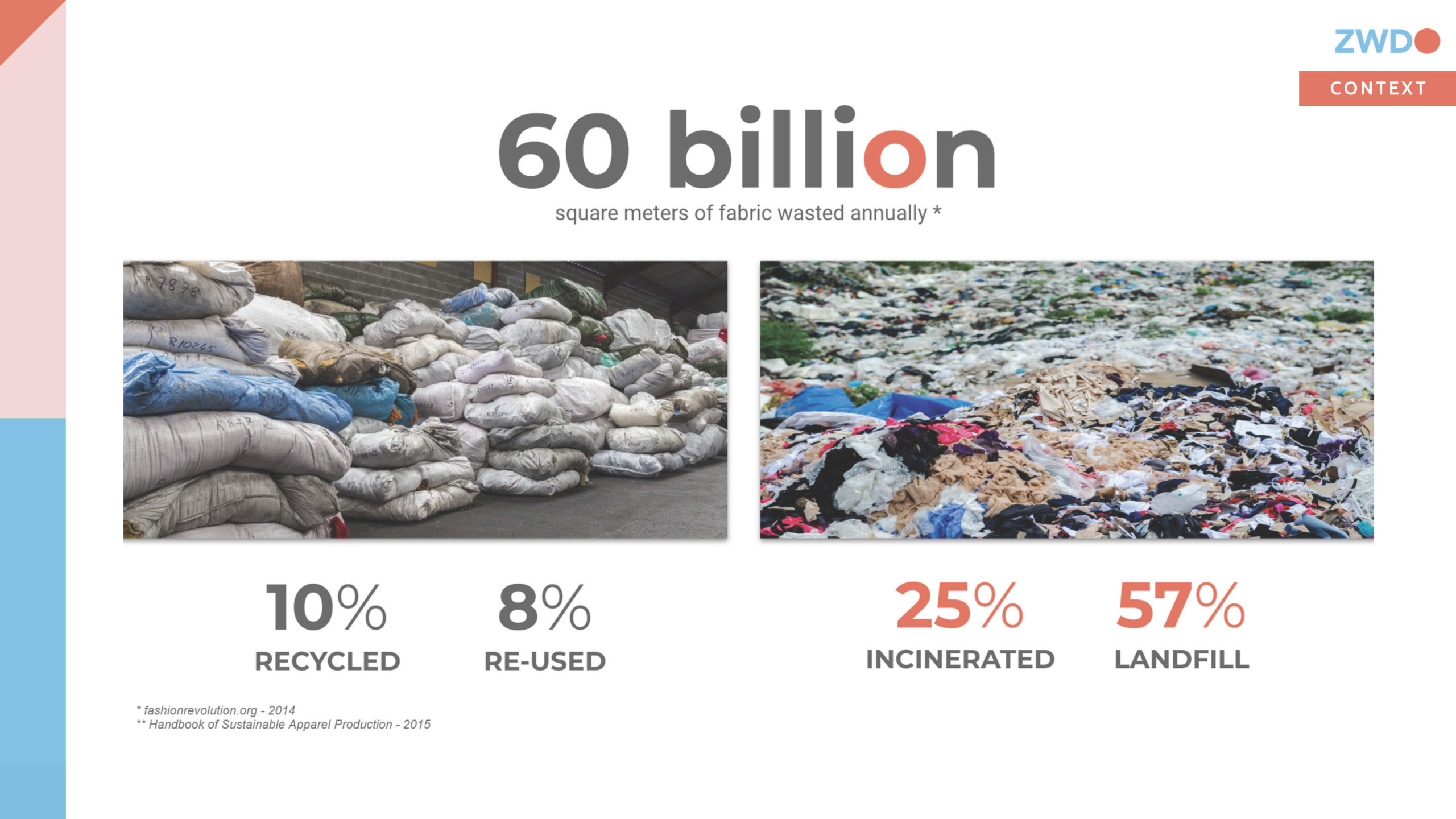Zero Waste Design E-Learning for Industry

Useful information
- Team members
- Cassandra Belanger - Industry Education Co-lead / Community Activation Lead Danielle Elsener - Industry Education Co-lead+ Consultancy Lead Mylène L'Orguilloux - Strategist + Finance Lead Holly McQuillan - Resident Change Agent / Associate Professor in Materialising Futures at TU Delft, Netherlands Hilary Marsh - Community Activator
- Country
- France
- Keywords
- zero-waste-design zero-waste-fashion-design zero-waste-fashion sustainable-fashion-design ethical-fashion eco-fashion
Short Description
eLearning course to introduce the practice of ZW garment design to fashion industry and students.
Detailed Description
High speed, low cost production and rapidly changing trends currently guide fashion design, resulting in garments cut with enormous wasted space and 15-25% of fabric necessary for manufacturing being thrown away before garments are sewn. Our aim is to create a zero waste design eLearning course for fashion industry professionals to promote and integrate the use of ZWD methods into the current fashion production narrative, cutting the industry’s unnecessary waste.
Conventional design education does not cover ZWD methods as part of their core curriculum. Industry designers and practitioners therefore start their careers with no awareness of a different way of approaching design. We will provide the answer to zero waste design educational needs for a global industry, and change the direction of how fashion is designed and manufactured.
The project will include the development and build of the curriculum and content, filming and cost of production, as well as marketing and distribution.
Project Details
- Does your design take social and cultural challenges and human wellbeing into consideration?
We aim to develop accessibility options for designers, industry professionals, and students unable to afford traditional access to the course without support. We want people with reduced income from the global north and the global south to be able to access our resources and we will develop accessibility methods.
Inclusivity is an important pillar of our work. We seek to create a safe environment where people from any gender, ethnicity, disability and body type feel represented and can benefit from the project equally. The importance of grading (creating multiple sizes) in zero waste design and ensuring this is integrated into our elearning is key to ensuring that this method of design can be implemented by learners inclusively.
We also aim to work with underprivileged communities in the global south through collaboration with other not for profit organisations.
- Does your design support sustainable production, embodying circular or regenerative design practices?
The core motivation of this project is the preservation of our environment. We believe changing the way we design and think about fashion practices can change the whole trajectory of the current fashion system and have a positive impact on our environment.
Zero waste design is a key element of sustainable production. 15-25% of the fabric necessary for manufacturing is being wasted through inefficient placement of pattern pieces on the fabric at the production stage of a garment. Zero waste design eliminates production waste through innovative pattern engineering and requires a holistic approach to the organisational structure of fashion. This in turn encourages more collaborative working processing and breaks down the silos that the conventional fashion system has created, thus developing a more circular approach to the design process.
- Does your design use principles of distribution and open source?
We have developed a Contributive Debt Model which is a hybrid financial model that enables creators to be paid by community contributions for the time they spend on developing open source content. For the development of certain projects we track the amount of work spent as well as the resources invested. We then calculate the average cost by assigning an hourly rate in euros. The total cost is what we call the ‘collective debt’. This is a debt that the whole community of users incurs towards the creator who invested their time for the common good. This debt can be repaid by this collective contribution. Each month we monitor the number of downloads and donations to determine the current funding status and once it reaches 100% and the debt is fully repaid by the community, the project will become open source forever.
- Does your design promote awareness of responsible design and consumption?
Responsible design and consumption is core to zero waste design practice. Zero waste design not only eliminates fabric waste but it reduces the consumption of fabric per garment, which has huge environmental benefits. It reduces the amount of textile waste ending up in landfill and reduces the carbon footprint of a garment through the reduction of fabric consumption. 80% of a garment’s environmental impact (CO2) is generated by the fabric. By reducing fabric consumption we are reducing the environmental impact and implementing responsible design practices.
Images



Video
Project Website
Social Media Accounts
Instagram: @zwdo_collective
Facebook: @zerowastedesignonline